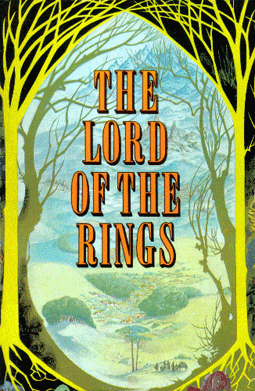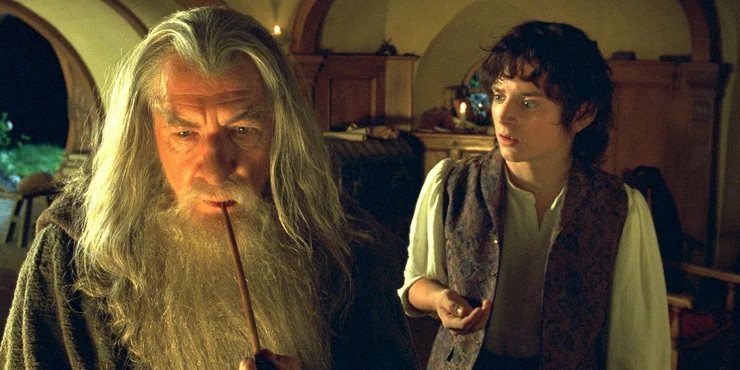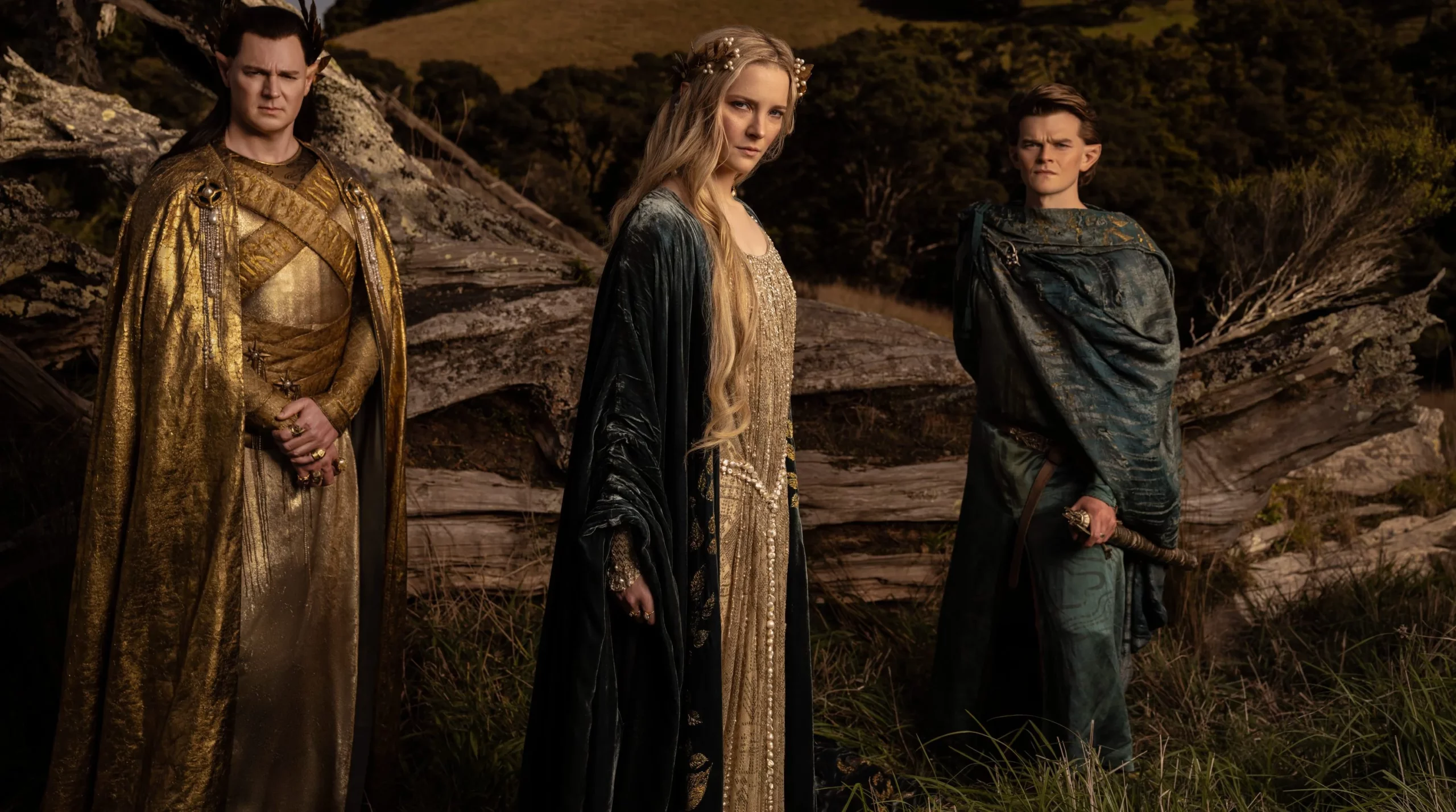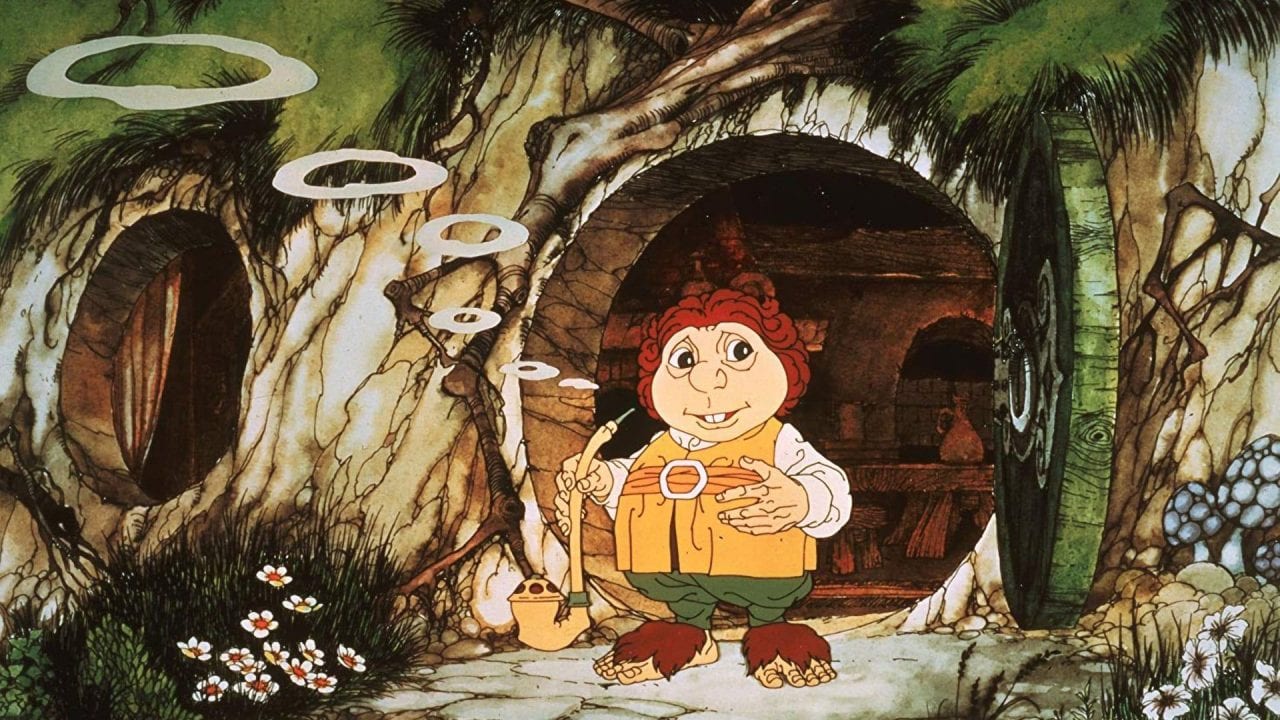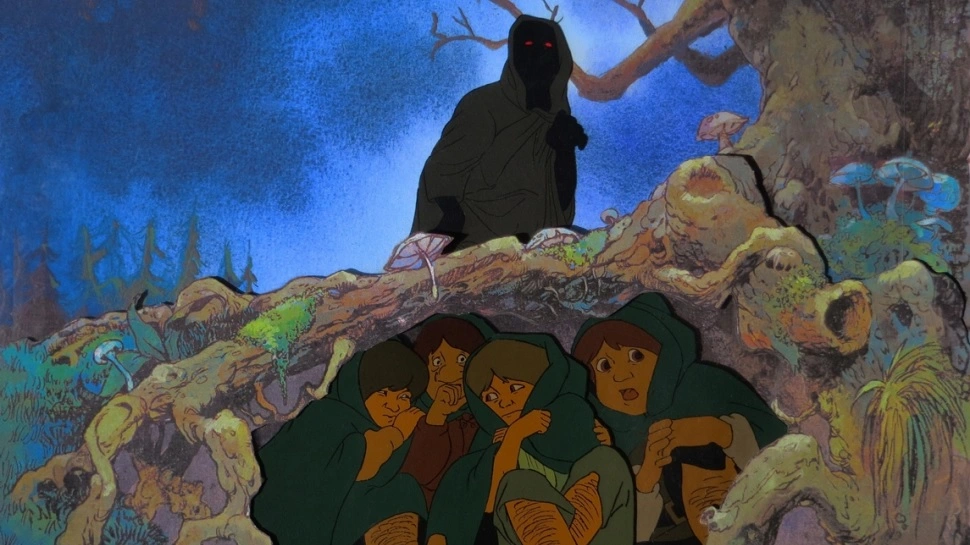YOU SHALL NOT PASS Up This Ultimate ‘Lord of the Rings’ Watch Guide
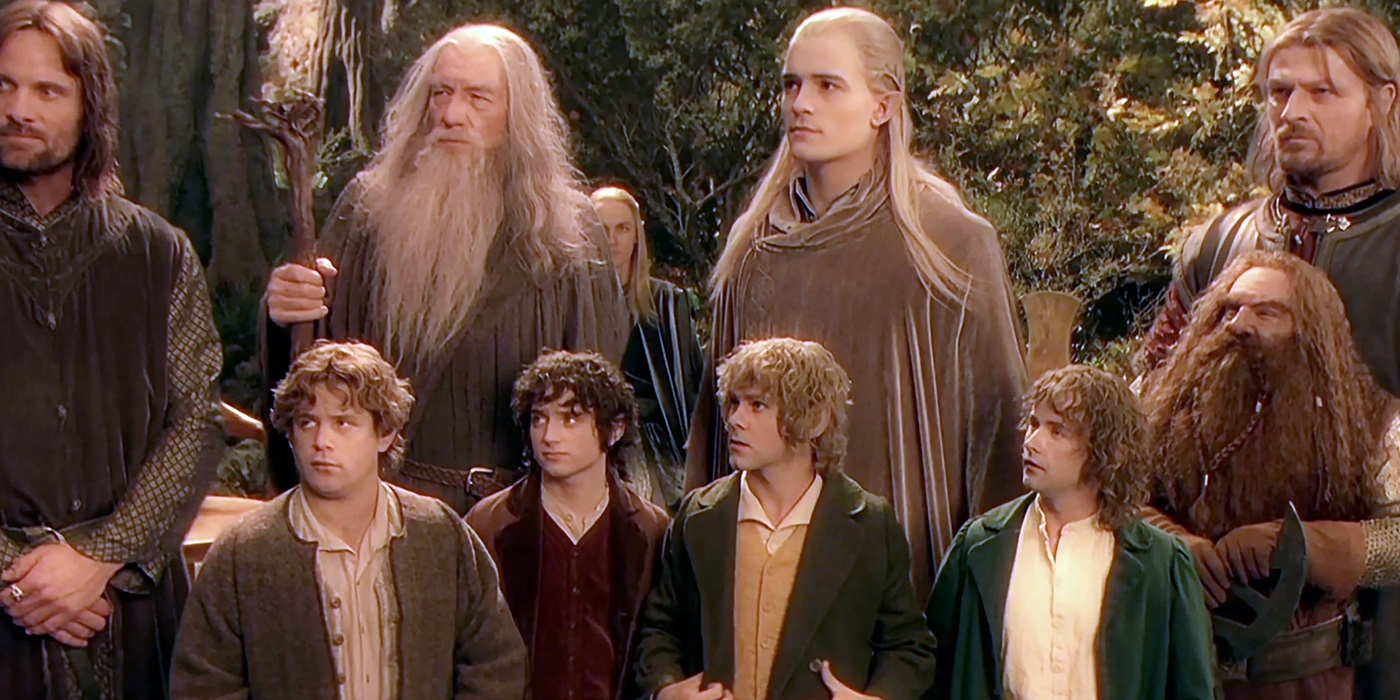
Find your fantasy passport and block out the next 21 consecutive hours, we’re heading to Middle-Earth with the ultimate Lord of the Rings watch guide.
Let’s talk about the Lord of the Rings. For many of us they were either one of the first very very long high fantasy book series we read, one of the first very very long high fantasy movie series we watched, or both in rapid succession. But no matter how you slice it, tons of fans have been taking trips to Middle-Earth for decades now. But how much LotR is out there? And how do you make sure that you’ve consumed it all?
The Books
This should be the most straightforward way to consume Lord of the Rings… Should be. But it’s probably longer and more detailed than you may think.
For just the core books, there are:
- The Hobbit or, There and Back Again (1937)
- The Lord of the Rings: The Fellowship of the Rings (1954)
- The Lord of the Rings: The Two Towers (1954)
- The Lord of the Rings: Return of the King (1955)
Those probably sound familiar. And if you get through these without becoming obsessed with Middle-Earth, they’re likely all you’ll need. But we’re fandom people, and sometimes that means making our favorite piece of media our entire personality. It’s okay, I’ve been there too. Luckily, there are more books. Like so many more books.
- The Adventures of Tom Bombadil and Other Verses from the Red Book (1962) (These are poems, only two of which feature Tom Bombadil.)
- Bilbo’s Last Song (1974) (Also a poem, sometimes published as a picture book.)
- The Silmarillion (1977) (Do you want a dense book of history, myths, stories for a fictional location? Good news! This was published posthumously by JRR Tolkien’s son, Christopher Tolkien.)
- Unfinished Tales of Numenor and Middle-Earth (1980) (This one tells you exactly what it is right in the title.)
- The Book of Lost Tales, Part I (1983) (This and the following eleven books comprise the ‘History of Middle-Earth’.)
- The Book of Lost Tales, Part II (1984)
- The Lays of Beleriand (1985)
- The Shaping of Middle-Earth (1986)
- The Lost Road and Other Writings (1987)
- The Lost Road and Other Writings (1987)
- The Treason of Isengard (1989)
- The War of the Ring (1990)
- Sauron Defeated (1992)
- Morgoth’s Ring (1993)
- The War of the Jewels (1994)
- The Peoples of Middle-Earth (1996)
- The Children of Húrin (2007)
- Beren and Lúthien (2017)
- The Fall of Gondolin (2018)
- The Nature of Middle-Earth (2021)
- The Fall of Númenor (2022)
If looking at this list doesn’t exhaust you, you may be built for a Lord of the Rings deep-dive. And if that’s the case, godspeed and I genuinely hope you have the most fun. But if it did, don’t worry—it gets easier and more palatable from here.
The Big Budget Films
If you are here, visiting BoLS, you have the internet. And if you have access to the internet, you know about Peter Jackson’s Lord of the Rings films. They’re known by some for being long, detailed, and lovingly made adaptations of the books, and by others for being long. I’ve seen fans watch the extended cuts of every one of these in a row at least once a year, and others put them squarely on the ‘watched once ever’ list. But even if you’re a one-and-done, most agree that Peter Jackson’s Lord of the Rings is great. It consists of:
- The Lord of the Rings: The Fellowship of the Rings (2001) (2hr 58min Theatrical Run, 3hr 28min Extended)
- The Lord of the Rings: The Two Towers (2002) (2hr 59min Theatrical Run, 3hr 43min Extended)
- The Lord of the Rings: Return of the King (2003) (3hr 21min Theatrical Run, 4hr 11min Extended)
Easy, breezy, beautiful, right? They did so well that nine years later, Jackson came back with the prequel, The Hobbit. Only despite being based on a single 304-page book, he decided that Bilbo needed the same trilogy treatment as Frodo.
- The Hobbit: An Unexpected Journey (2012) (2hr 49min Theatrical Run, 3hr 2min Extended)
- The Hobbit: The Desolation of Smaug (2013) (2hr 419min Theatrical Run, 3hr 6min Extended)
- The Hobbit: The Battle of Five Armies (2014) (2hr 24min Theatrical Run, 2hr 44min Extended)
So how do you watch these? The Hobbit (book) was published first, but The Hobbit (films) were made second. And if we’re being honest, you need very little context from The Hobbit to understand the goings-on of Lord of the Rings.
Rings of Power
Amazon Prime’s Rings of Power has been a controversial addition to the live-action LotR universe. It was developed as a streaming television series with an eight-episode first season and focuses on some of the histories of Middle-Earth that are covered in The Silmarillion. This was also the only of many streaming shows pitched by a number of services including HBO and Netflix, but only Amazon and their idea for Rings of Power saw approval from the Tolkien estate as a project that would “protect Tolkien’s legacy.”
Taking place thousands of years before the events of The Hobbit and Lord of the Rings, the show covers the major events of Middle-Earth’s Second Age, the forging of the titular rings of power, the rise of Sauron, the fall of Numenor, and the last alliance between Elves and Men. If you glanced at that book list, you probably have the inkling that this is a ton of information over the course of many, many in-universe years, so Amazon had to condense things down a bit.
And fans were split. Some hated it, others thought it was good. Personally,, I thought it was fine.
That said, viewership was huge, reviews were generally favorable, and a second season is slated to be coming sometime this year.
Where does this go on the watch list? Chronologically, well before any of The Hobbit or Lord of the Rings movies. When should you watch this? After. I’m not sure if this series needs the structure and context of the main story to stand up, but it definitely grounds the show and gives everything that’s going on stakes.
Animated Middle-Earth
But what if you’re looking for a hit of nostalgia? Well! The animated Hobbit and LotR movies. And unlike Jackson’s films, these were produced in order.
The Hobbit was made as an animated musical TV special released in 1977. It was written by Romeo Muller and directed by Arthur Rankin, Jr. and Jules Bass, who were also all responsible for Rudolph the Red-Nosed Reindeer, Frosty the Snowman, and all of our stop-motion Christmas time traditions. Musical made-for-TV Hobbit came in at just 78 minutes and went on to be nominated for a Hugo Award for Best Dramatic Presentation. It may have won, too, but Star Wars was nominated that same year. So… you know. More recent reviews are a bit more critical, but if you’re going to watch 70s animation or adaptation with a modern eye, of course, it’s not going to hold up.
In 1978 animated The Lord of the Rings was released to theaters. But this production was completely unrelated to the previous year’s Hobbit. The team included director Ralph Bakshi (Fritz the Cat and Cool World) and Peter S. Beagle (The Last Unicorn) writing the screenplay, and aimed to be nothing like The Hobbit with Bakshi calling the 1977 Hobbit “an awful, rip-off.”
This was originally conceived of as the first of a trilogy following along with the books, but due to budget concerns, it ended up being the first of two animated LotR movies. This one adapted both Fellowship of the Ring and The Two Towers with plans for a soon-to-eventual Return of the King film.
Unfortunately, this never happened. Despite two years of work and decent box office success, fan response was bad. The movie was described as having cheap-looking effects, and no ending with no explanation of an upcoming part two.
Until 2000, Bakshi even entertained the idea of finally making his sequel with the right team. But when the live-action films went into production, he felt slighted by not being notified, and when WB finally approached him about an animated Return of the King he refused.
However, Muller, Bass, and Rankin stepped back in 1980 with their own animated Return of the King. Which was also a musical television film. Fan response was lukewarm at best, with even Rankin admitting that it was a huge undertaking that resulted in a not-very-good film. But it’s not like that was stopping them from adapting more of the story.
The Most Important Addition to the Universe
This is one of the most aggressively 1967 things I have ever seen and I love it for that.
Happy adventuring!

